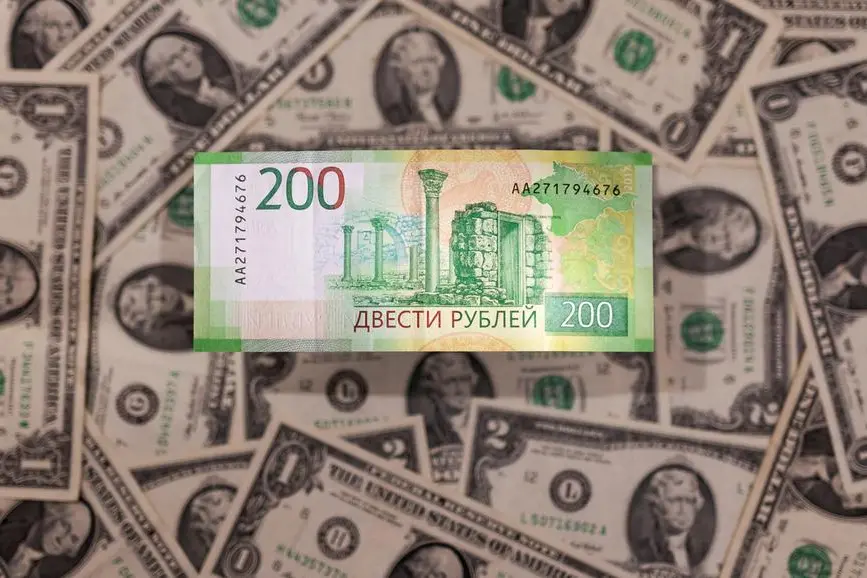PHOTO
The Russian rouble steadied near 81 against the dollar on Thursday, not far from a five-week low, under pressure from lower oil prices and geopolitics, while dynamics in the supply of foreign currency were mixed.
At 0744 GMT, the rouble was 0.1% weaker against the dollar at 81.17 and was unchanged at 86.55 versus the euro. It had firmed 0.1% against the yuan to 11.37.
Some large Russian exporters converting foreign currency revenues to pay upcoming dividends has supported the rouble, but the currency usually sees reduced support from FX conversions at the start of each month, after companies have paid month-end taxes.
Persistent local demand for foreign currency has hampered the rouble of late. Local investors buying up Western assets plays against the rouble and Western companies still trying to exit the market face growing headwinds.
Geopolitics has also played a role.
The rouble hit its weakest since late April on Tuesday after drone strikes that one politician called the most dangerous attack on Moscow since World War Two. A Ukrainian presidential aide denied Kyiv's direct involvement.
Brent crude oil, a global benchmark for Russia's main export, was up 0.3% at $72.79 a barrel. Brent was trading near $78 a barrel early this week.
Ministers from OPEC+ that includes top producers Saudi Arabia and Russia are scheduled to gather on Saturday and Sunday for a regular biannual meeting. The group pumps more than 40% of the world's oil supply.
"Oil will now play a very large role for the further dynamics of the Russian equity market," said Alor Broker in a note. "Many securities are overbought."
Russian stock indexes opened higher.
The dollar-denominated RTS index was up 0.3% to 1,058.5 points. The rouble-based MOEX Russian index was 0.3% higher at 2,726.7 points.
Russia published a trove of monthly economic data late on Wednesday, with record low unemployment laying bare Russia's labour shortage that is stifling economic growth. (Reporting by Alexander Marrow Editing by Mark Potter)





















